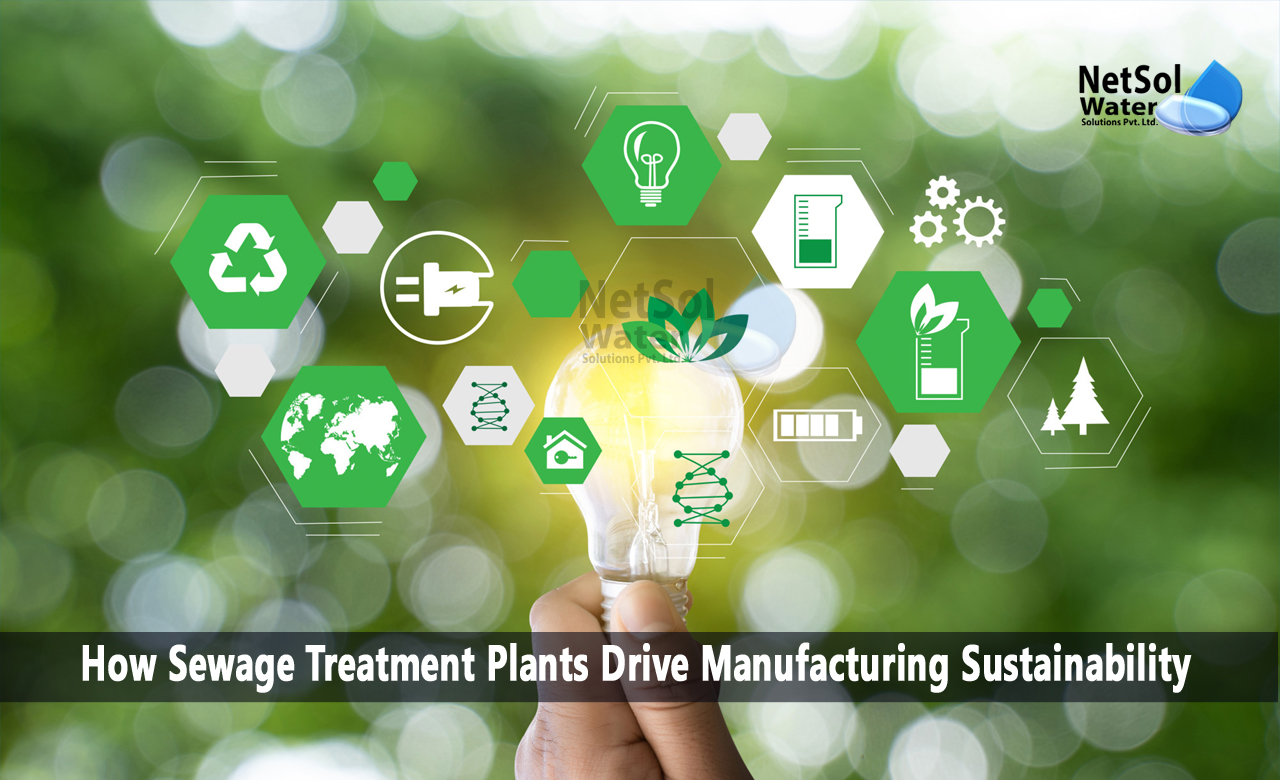How Sewage Treatment Plants Drive Manufacturing Sustainability?
In an era where environmental sustainability is a global priority, manufacturers are increasingly embracing green practices to reduce their ecological footprint. One significant aspect of sustainable manufacturing is the effective management of wastewater through sewage treatment plants. These plants not only safeguard the environment but also drive manufacturing sustainability.
In this blog, we will explore how sewage treatment plants play a crucial role in fostering a greener future for the manufacturing industry.
1- Preserving Water Resources
Water scarcity is a pressing concern worldwide, making efficient water management a critical aspect of sustainability. Sewage treatment plants allow manufacturers to recycle and reuse water, reducing their reliance on freshwater sources. By treating wastewater and reclaiming it for various purposes within their operations, manufacturers can conserve precious water resources and contribute to long-term water sustainability.
Implementing advanced treatment technologies, such as membrane filtration or reverse osmosis, enables manufacturers to produce high-quality treated water suitable for non-potable applications like cooling towers, irrigation, or even process water. This approach reduces the strain on local water supplies, supports water-stressed regions, and helps build resilience in the face of future water challenges.
2- Minimizing Environmental Impact
Manufacturing activities often generate wastewater containing pollutants that can harm ecosystems if discharged untreated. Sewage treatment plants act as a barrier, preventing these contaminants from entering natural water bodies and causing ecological damage. By effectively treating their wastewater, manufacturers mitigate their environmental impact and contribute to the preservation of aquatic habitats.
Advanced treatment processes, such as biological treatment and chemical oxidation, efficiently remove organic compounds, nutrients, and toxic substances from wastewater. This ensures that the effluent meets or exceeds regulatory standards, safeguarding water quality and protecting the health of aquatic ecosystems. By embracing sewage treatment plants, manufacturers demonstrate their commitment to environmental stewardship and contribute to a greener future.
3- Energy Recovery and Resource Optimization
Sewage treatment plants offer opportunities for energy recovery and resource optimization, further enhancing manufacturing sustainability. Technologies like anaerobic digestion can convert organic waste in wastewater into biogas, a renewable energy source. Manufacturers can utilize this biogas to generate electricity or heat, reducing their reliance on fossil fuels and lowering greenhouse gas emissions.
Additionally, sewage treatment plants can facilitate the recovery of valuable resources from wastewater. Nutrient recovery technologies extract nutrients like nitrogen and phosphorus, which can be repurposed as fertilizers or used in other industries. This circular approach reduces the need for external nutrient sources and minimizes the environmental impact associated with nutrient release.
4- Meeting Stakeholder Expectations
Today, stakeholders, including customers, investors, and communities, expect manufacturers to operate sustainably and demonstrate a commitment to environmental responsibility. Sewage treatment plants provide a tangible way for manufacturers to meet these expectations and enhance their reputation as socially and environmentally conscious organizations.
By investing in sewage treatment plants, manufacturers showcase their dedication to reducing their environmental impact and contributing to a greener future. This commitment resonates with eco-conscious consumers, who increasingly favor sustainable products and services. It also attracts responsible investors interested in supporting companies aligned with their sustainability goals.
Conclusion
Sewage treatment plants are instrumental in driving manufacturing sustainability by preserving water resources, minimizing environmental impact, optimizing resource utilization, and meeting stakeholder expectations. Manufacturers that embrace these plants not only fulfill their environmental responsibilities but also position themselves as leaders in sustainable business practices.
As the world moves towards a greener future, sewage treatment plants will continue to play a vital role in shaping a more sustainable manufacturing industry. By embracing these technologies, manufacturers can reduce their ecological footprint, foster a circular economy, and contribute to a healthier planet for current and future generations.
Netsol Water is Greater Noida-based leading water & wastewater treatment plant manufacturer. We are industry's most demanding company based on client review and work quality. We are known as best commercial RO plant manufacturers, industrial RO plant manufacturer, sewage treatment plant manufacturer, Water Softener Plant Manufacturers and effluent treatment plant manufacturers. Apart from this 24x7 customer support is our USP. Call on +91-9650608473, or write us at enquiry@netsolwater.com for any support, inquiry or product-purchase related query.



